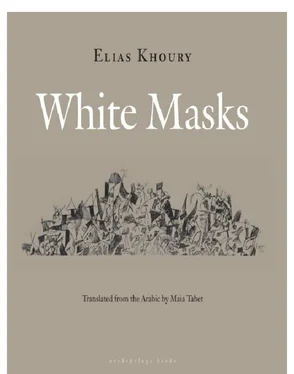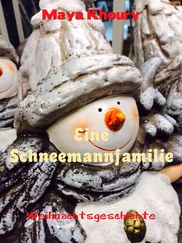As Fatimah stands there, delaying, the man sinks down to the sidewalk, takes a piece of bread out of his pocket, and starts to eat. Turning to her, he says, “God bless you. . let me have a drink of water.” She steps inside and comes out with a bottle of water.
Even though the war was over, the streets were still deserted. At any rate, that’s what everyone was saying, the war is over and the world’s armies are here to stop the war. But Fatimah couldn’t help feeling sad, because it truly was over for those who had died, the dead are gone forever. She thought the war would kill them all, that there’d be no one left to tell the tale. When Mahmud fell to the ground in front of her very eyes, blood gushing from every part of his body, she was sure they were all going to die — she, the children, all of them.
After Mahmud died, she wouldn’t go back to Kantari, she doesn’t know anyone there, and he didn’t tell her where he’d hidden the money he had gotten from selling that woman’s bracelets. No money, no relatives, no war. In other words, everything just the same as before: Basheer al-Harati and his capricious ways; the protection of Professor Nabeel; the children, of course; and Hussein, who disappears for days at a time without coming back. She wonders where he goes… With Zeytouneh destroyed, there aren’t any whores to be had these days! She really doesn’t know where he goes and she dare not ask.
And now, here she is standing next to this strange man sitting on the sidewalk and talking to himself. Fatimah invites him in. His only response is to raise his eyebrows.
“What are you doing here, why are you ripping all the posters up?” she asks him. So he starts to tell her about the white sheets.
Fatimah saw him only a few times before he disappeared. Though she never asked, she heard that the shabab had taken him in for questioning. The fact is he disappeared, and anyhow, he never said very much.
“The white sheets,” he says to her, “First, the bed has to be painted white, then we put a white sheet on it, cover ourselves with a white bedspread, and go to sleep. We must pull the covers right up over our eyes, so that all we can see are tiny white speckles of light.” He tells her he is going to buy a sheet and sleep in it, with Ahmad by his side.
“Little Ahmad, chasing me chasing him, I hoist him up high and he flies. . he flies through the air, and soars like a bird into the stratosphere. . there. . no higher than that. . A man comes along, then two, then three, a thousand, a million men come. . The man points his rifle skywards, he takes aim, he fires. The flames leap up toward him, but Ahmad soars, the flames licking all around him as he tries to escape, and he circles around and around, then crashes down and the fire devours him. The bird is on fire, its feathers are ablaze, it’s nothing but a big fireball, and I will burn the sheet.
“I am white. I want a white sheet to sleep on, with a white bedspread over the sheet, and a naked light bulb hanging in the middle of the room. Peering through the white fabric I can see the light refracting, nothing but little white specks. My teeth are white, and the walls. . even the walls are white.”
Propped up against the curb, he goes on and on like this as Fatimah listens. He talks endlessly. The war is over, and this man is all alone, just like she is. And Hussein is never home, just like his father, forever leaving her by herself… she feels frightened, all by herself, standing before this man, staring at ravaged walls and ripped-up pictures. She turns on her heels and goes back inside. She’s scared, but this man seems fearless, he doesn’t seem afraid of anything. She feels as if she’s somehow always known him.
Gradually, she begins waiting for him. One day, she goes and stands on the sidewalk across the street, but he doesn’t come by, so she decides to go and do the day’s shopping. After setting off, she realizes that she’s left her money at home, so she hurries back to the room, tucks a little knotted handkerchief into her bosom, and goes out once again. She’s still on the lookout for him, but no one is there. And then, all of a sudden, there he is, plodding along slowly, hugging the walls, with his back stooped, in his lime-soaked shoes and his pith helmet, carrying his little bucket and his paintbrush, hugging the walls. Fatimah approaches him, but he just keeps going, so she falls into step beside him; he doesn’t turn toward her but she knows he can see her. . He halts, and then sets off again, going on his way without acknowledging her. Stopping in her tracks, she decides to head back home, but then out of the corner of her eye she catches him turning toward her, moving in her direction. People are rushing by, car horns are blaring, the city is humming with city noises. The man pauses, and then moves on again, while she heads home — she doesn’t need anything today. She steps inside and waits.
That evening, he’s back: he lies down on the sidewalk across the street and she takes a glass of tea out to him. Holding the glass with a trembling grip, he takes a sip, and smacks his lips, as though chewing on something. Fatimah notices his dirt-encrusted fingers and his overgrown nails. She asks him whether he would like something to eat.
“No, but thank you for asking, my dear… No, my dear, I don’t want anything. I’ll just sit here.” Then he starts telling her about boxing.
“I am a boxing and weightlifting champion. You know, like on television? You can ask them about me at the television station if you like, I’m the king of TV.” He falls silent, looks up at the sky, and then goes on. “But I don’t like appearing on TV anymore, the screen is so small and narrow I feel suffocated. I feel it pressing against my head. So I quit. I gave up everything and decided to buy a white sheet, but sheets are expensive these days.
“The city’s empty,” he goes on. “The city’s empty, all its citizens are under the sheet, you’re under the sheet, and I am too. . come and get in under the sheet.”
Fatimah doesn’t know what to say. He must be delirious, but what if he’s right? Maybe he’s right. . he doesn’t seem like anyone I know, she thinks, no, not like Fadee or Mahmud or Ali, or anyone else for that matter, with that little beard of his — that little white goatee of his doesn’t look like anything I know.
“Come and get under the sheet with me. Go and fetch your children, and all of you come under the sheet. The city’s all white, I’m painting it… Did you know that? That’s work, real work.”
“But you seem so poor. . are they paying you?”
“Naturally I’m poor. No, they don’t pay me. Of course not, because we won’t take payment. I am the sole remaining volunteer in this country. I volunteer my services, it means I work and don’t get paid because I have volunteered. All the walls will become white. . And the hands. . Hands are the most important thing in the world.”
Fatimah looks down at her hands and fingers, while he stares into space.
“The most important things in the world are hands: everyone’s hands will become white, fingers, fingernails, walls.” And then he bursts out laughing. “I was a boxer once. No, no, I didn’t get married. I can’t stand women. I’m a boxer, and when I pull on my black boxing gloves and strike my opponent, the blood runs. But I gave up.” He hoists himself up with both hands. “Even the sky’s white, look.”
Listening to him, Fatimah smiles. She feels just as she used to when she gazed at the little picture — the one Sitt Huda had given her long ago — of a woman with huge wide eyes, cradling an infant in her arms. .
“That’s our sacred Lady, the Virgin Mary, peace be with her. It’s our Lady Mary with Jesus.”
Читать дальше












